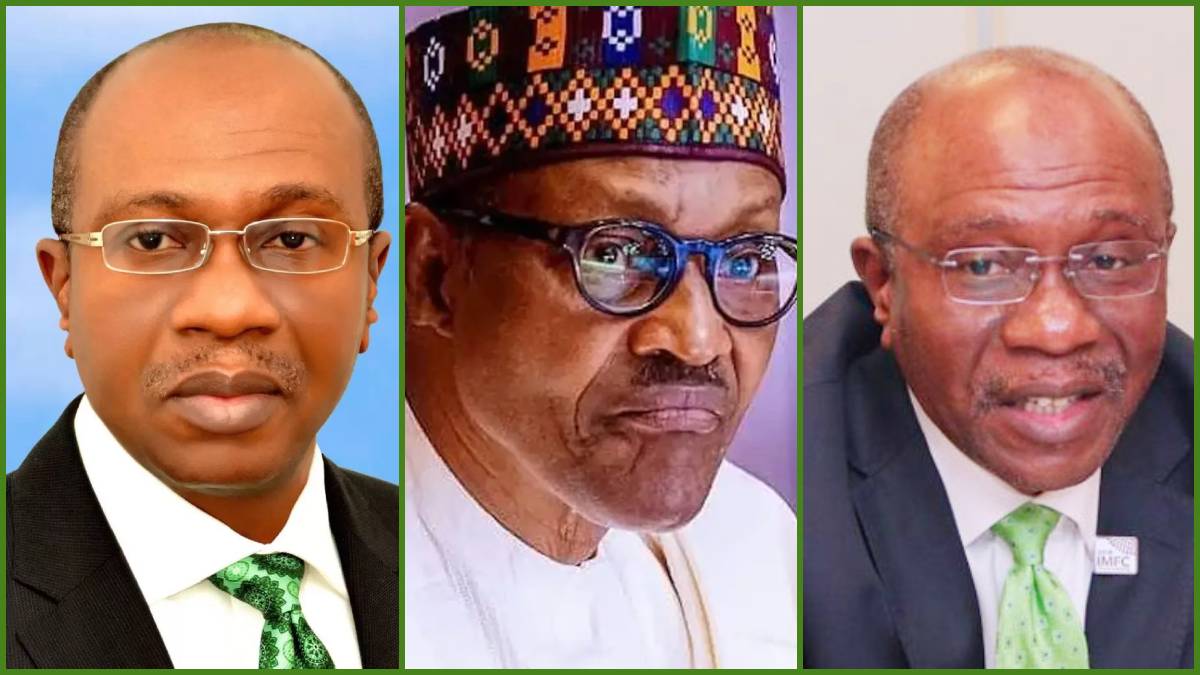Godwin Emefiele, governor of the Central Bank of Nigeria (CBN), has stated that the CBN will not be rigid in its implementation of a new policy limiting cash withdrawals.
Individuals are limited to withdrawing N100,000 per week and businesses are limited to withdrawing N500,000 per week from OTC locations, as per limits set by the CBN. Asked by reporters after a meeting with President Muhammadu Buhari in Daura, Katsina state, Emefiele explained that the policy was put in place to help usher the economy into the digital age.
the man was “very happy and said we should carry on our work, no need to fear, no need to bother about anybody,” he said of Buhari. When asked if the restrictions on cash withdrawals would be rescinded, Emefiele said,
Because I cannot promise that we will be unyielding, we will periodically assess how well this is working.
Whether it’s about tricking some quantity to be a little bit higher or a little bit lower, and all the rest of them, that doesn’t mean we’ll necessarily rescind or alter the schedule.
As decent human beings, we will do this to ensure that our people are living a good life. We don’t want to add unnecessary hardship to their lives.
So, no one should be concerned; the CBN is keeping a close eye on developments, and I can guarantee that we are fully awake to our responsibilities and will act in the best interests of Nigeria and its people.
“We believe that Nigeria, as a large country and the largest economy in Africa, needs to make the transition to a cashless economy at an accelerated pace.
There can’t be more than 85% of money in circulation that isn’t in a bank, and we can’t let that continue. When asked if the changes to the rules for getting cash would be reversed, Emefiele said, “More and more countries that are embracing digitalization have gone cashless.
Furthermore, Emefiele disproved allegations that certain individuals or communities would be singled out for special treatment under the new policy. In addition, he said
“I’ve said this in various settings: “This is not targeted at anybody; it’s simply meant for the good and development of the Nigerian economy,” and “we can only continue to appeal to Nigerians to please see this policy the way we’ve presented it.” He also disclosed that the banking system has received approximately N1 trillion in various denominations of the currency. Emefiele added that banks have begun giving out the freshly arrived cash that arrived at their various offices on Wednesday.”
He said;
“We’ve taken more than $500 billion, and we also have close to $500 billion in the bank. But what we’ve done at the central bank is to move more people from other departments into currency processing so that they can process this cash as quickly as possible. From there, banks can now move what they have with them.
“All I can say is that it will work out, so don’t worry. Luckily, the old currency was still legal until January 31, 2023.
“So, I’m going to make a joke: both the painted (new) notes and the unpainted (old) notes will be legal tender at the same time. But after January 31, the one that isn’t painted won’t work anymore, so please take it to your bank as soon as you can. “However, the House of Representatives told CBN to reverse its decision on the new cash withdrawal limits. The green chamber, on the other hand, asked the top bank to do more advocacy, education, and sensitization of small business owners across the country before putting out policies and directives that might affect their business concerns. On Thursday, December 8, the lawmakers met in plenary and decided that CBN should stop putting the plan into action until an investigation is done. The House also decided that the governor of the Central Bank of Nigeria (CBN) should come to the house on Thursday. The resolution was made in response to a motion by Hon. Magaji Dau Aliyu. Aside from the leader of the minority, Hon. Ndudi Elumelu supported the CBN’s policy because he thought it would stop banditry and cut down on corruption. However, many other lawmakers who spoke out strongly against the CBN’s decision.
